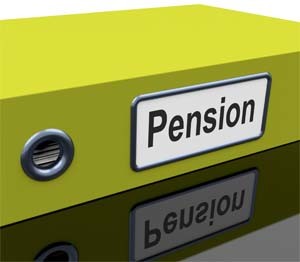
By Karin Mizgala, co-founder and CEO Women’s Financial Learning Centre and Money Coaches Canada
Retirement planning can raise a lot of questions and feel overwhelming to many Canadians, so I was very pleased when The Globe and Mail newspaper asked me to be one of the go-to experts for their Retirement Q&A section.
Here is my most recent contribution.

 Question from Derrick Alstein, Port Elgin, age 60:
Question from Derrick Alstein, Port Elgin, age 60:
I have a number of friends and a relative who are considering cashing in a defined benefit pension plan. I think an article on the pros and cons of a cash out strategy versus taking normal payments would be informative. Many people I know that have cashed out are taking advice from people that want to invest their money, have not done well and have had to go back to work.
Answer:
While the lump sum offered to people who consider cashing out their defined benefit pension can be very tempting, I rarely advise clients to withdraw from their pension and invest the proceeds with a financial adviser. Here’s why:
1. Ease of Management
With a defined benefit pension, your employer hires an investment company to manage the pension assets and is responsible to ensure that employees receive the monthly  payment they are entitled to based on a formula that considers earnings history, years of service and age. You have no direct involvement in the management of the investments and there is no need for you to make any investment decisions before or after retirement. At retirement you receive a regular monthly payment from your employer for life. Simple. Most people who want to weigh the pros and cons of a lump sum withdrawal turn to their financial advisers for advice. Of the almost 100,000 financial advisers in Canada, 99% have a vested interest in directly or indirectly managing your investments. I’m not saying that it’s impossible for advisers to provide unbiased advice on whether to stay with the pension or not, but when the potential investment dollars are significant, let’s face it, it’s not easy to remain impartial. To avoid any potential conflicts of interest, it is best to consult an accountant, actuary or fee-for-service financial planner on pension decisions.
payment they are entitled to based on a formula that considers earnings history, years of service and age. You have no direct involvement in the management of the investments and there is no need for you to make any investment decisions before or after retirement. At retirement you receive a regular monthly payment from your employer for life. Simple. Most people who want to weigh the pros and cons of a lump sum withdrawal turn to their financial advisers for advice. Of the almost 100,000 financial advisers in Canada, 99% have a vested interest in directly or indirectly managing your investments. I’m not saying that it’s impossible for advisers to provide unbiased advice on whether to stay with the pension or not, but when the potential investment dollars are significant, let’s face it, it’s not easy to remain impartial. To avoid any potential conflicts of interest, it is best to consult an accountant, actuary or fee-for-service financial planner on pension decisions.




 Question from Derrick Alstein, Port Elgin, age 60:
Question from Derrick Alstein, Port Elgin, age 60: